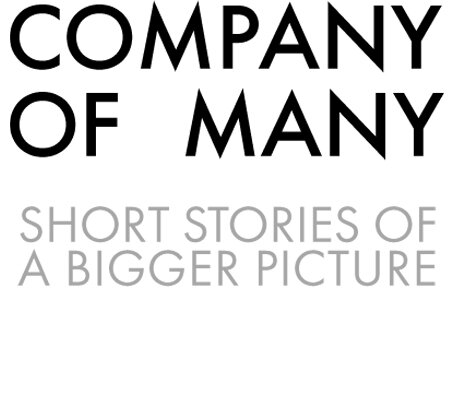From the Salma district, Ibrahim Soubhe had always lived close to the border with Turkey. That's not a thing that you care about if you are living your ordinary life, is it: in a life that’s unthreatened by direct politics and that is driven on by family ties, friendly business and casual trading back and forth - borders are just a formality, a fact-of-life that you easily step over (even literally). Except that this crossing at Yayladagi, suddenly, changed from an ‘alway has been here’-border, to a near-impregnable one, that was fortified, walled and watched closely.
“I evaded the checkpoint when it was time for my family and I to leave Syria. Just… we ran through the forest.” Ibrahims companion Mohammad pulls his shoulders into his neck and looks around with big, round eyes - he is mimicking how he, too, went from tree to tree, trying to hide as much as possible. Many people of Turkmen heritage lived in the border region. They found their way to Yayladagi in similar ways.
We’re on our way to the town. Five people stuck in a rental car. Ibrahim, 36 years old and the father of two, has been given the middle spot in the backseat, so he can more easily direct us across the steep roads, which snake ever further upwards through the mountainous district. We catch a glimmer of silver - the Mediterranean Sea catching the sunlight. “You get everything here; the water and the mountains”, Ibrahim says. The smell of thyme and pine hang heavy in the air, I notice when we have finally negotiated a parking spot for the walk - while Daniel and I insist on a pedestrian tour, the other men are far less inclined. I can’t blame Mohammad, who recently injured his foot when he tried to jump into a river for a swim, meeting the waters bank sooner than anticipated.
It falls on Ibrahim, then, to take us around. “Just up and down the hill, then.” The midday’s temperature rising as we walk, Ibrahim seems to warm to the notion of our stroll. We pass fields that have been plotted amongst the mountain ridges, in slightly less steep valleys and on plateaus. There is some work going on, with forests being cleared for a new harvesting season, Syrian Salma is an agricultural district too, and Ibrahim is reminded of his life when growing things - peppers, fruits, crops. As he guides us along the fields, pointing and explaining, I get the distinct notion that Ibrahim is reminding himself about all that he loves and flourishes. “Now, I’m not allowed to farm again”, Ibrahim says. He explains how he put in a request for a field to cultivate with the local authorities, but he was denied it. “I would be growing strawberries.”
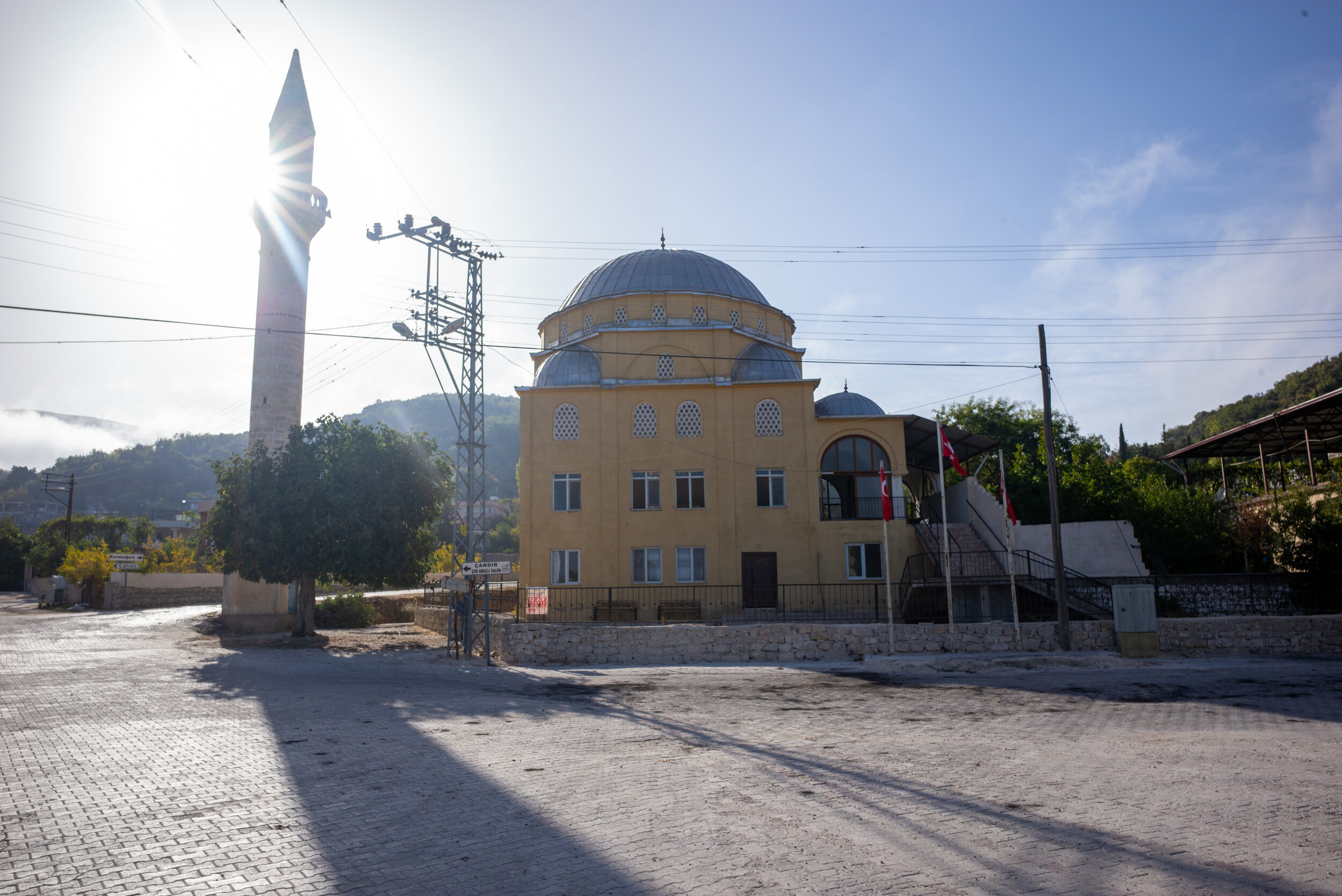
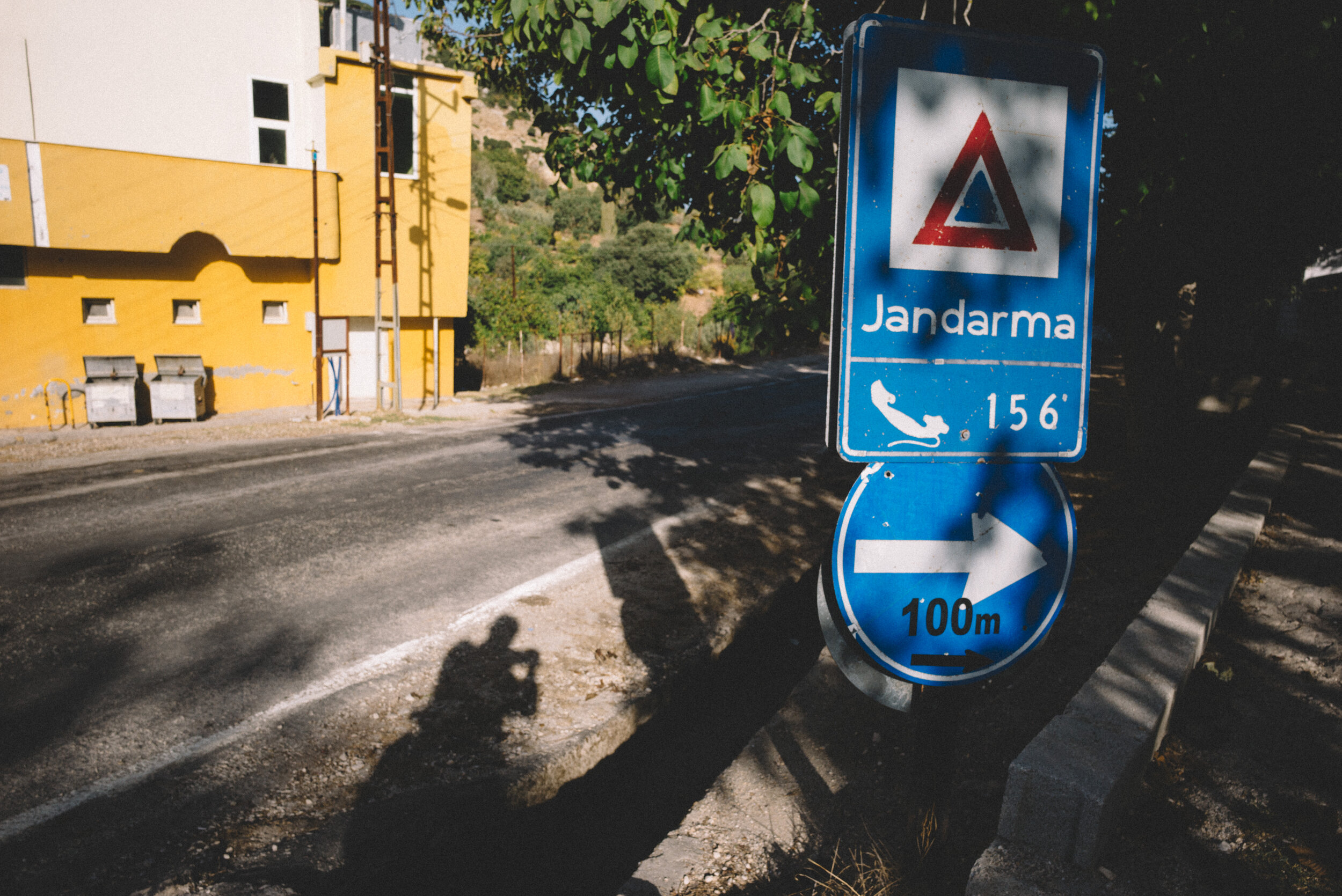
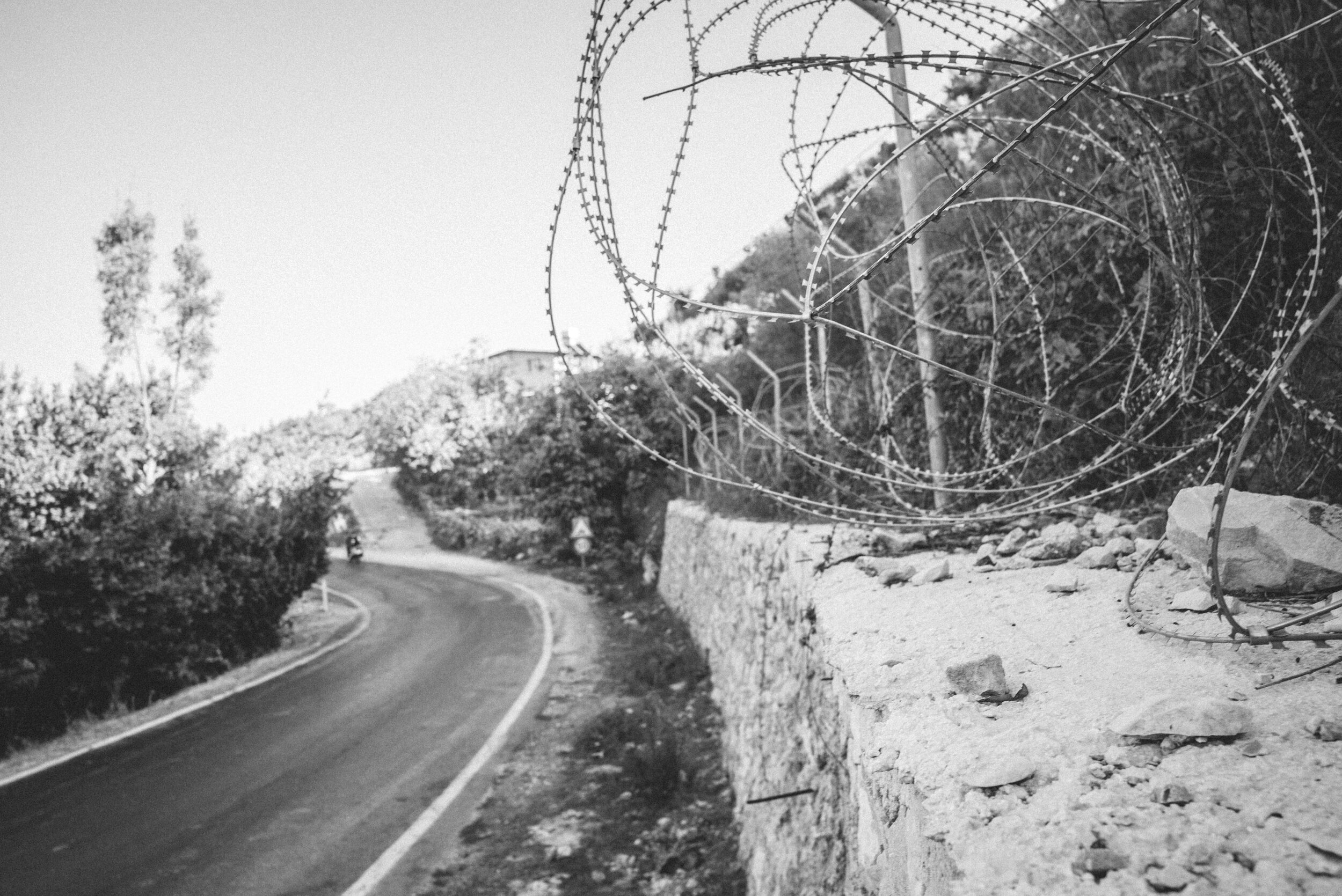
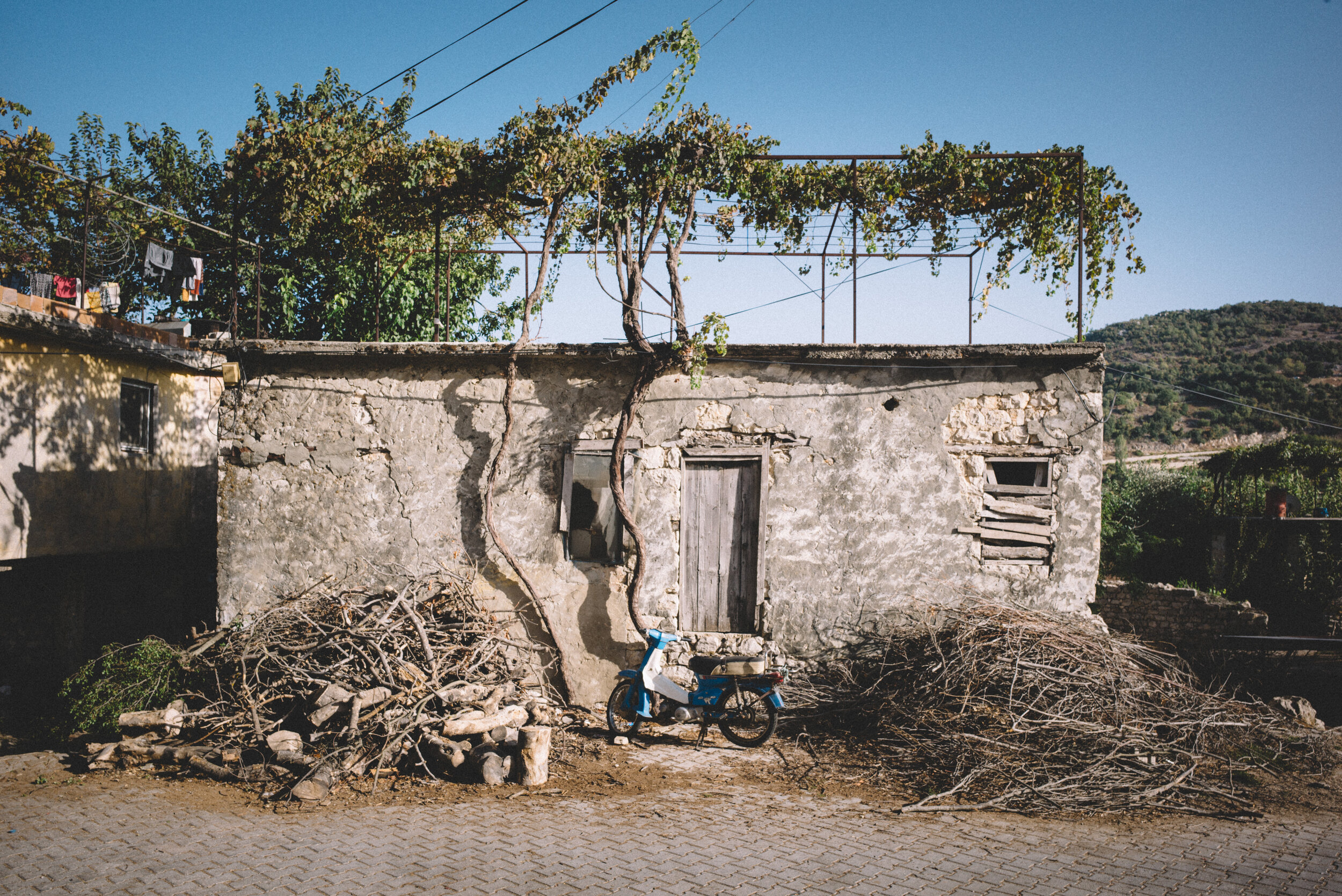
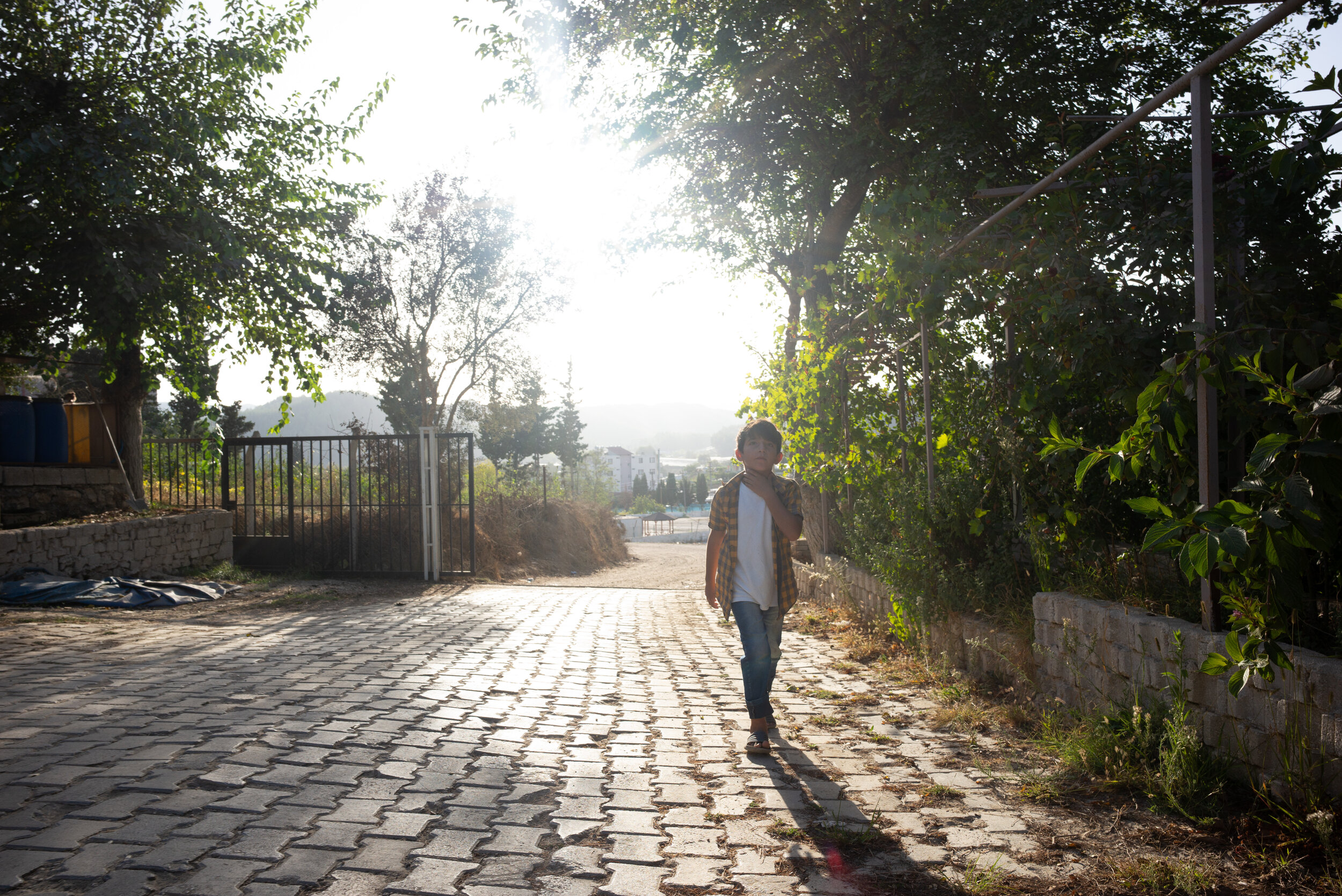
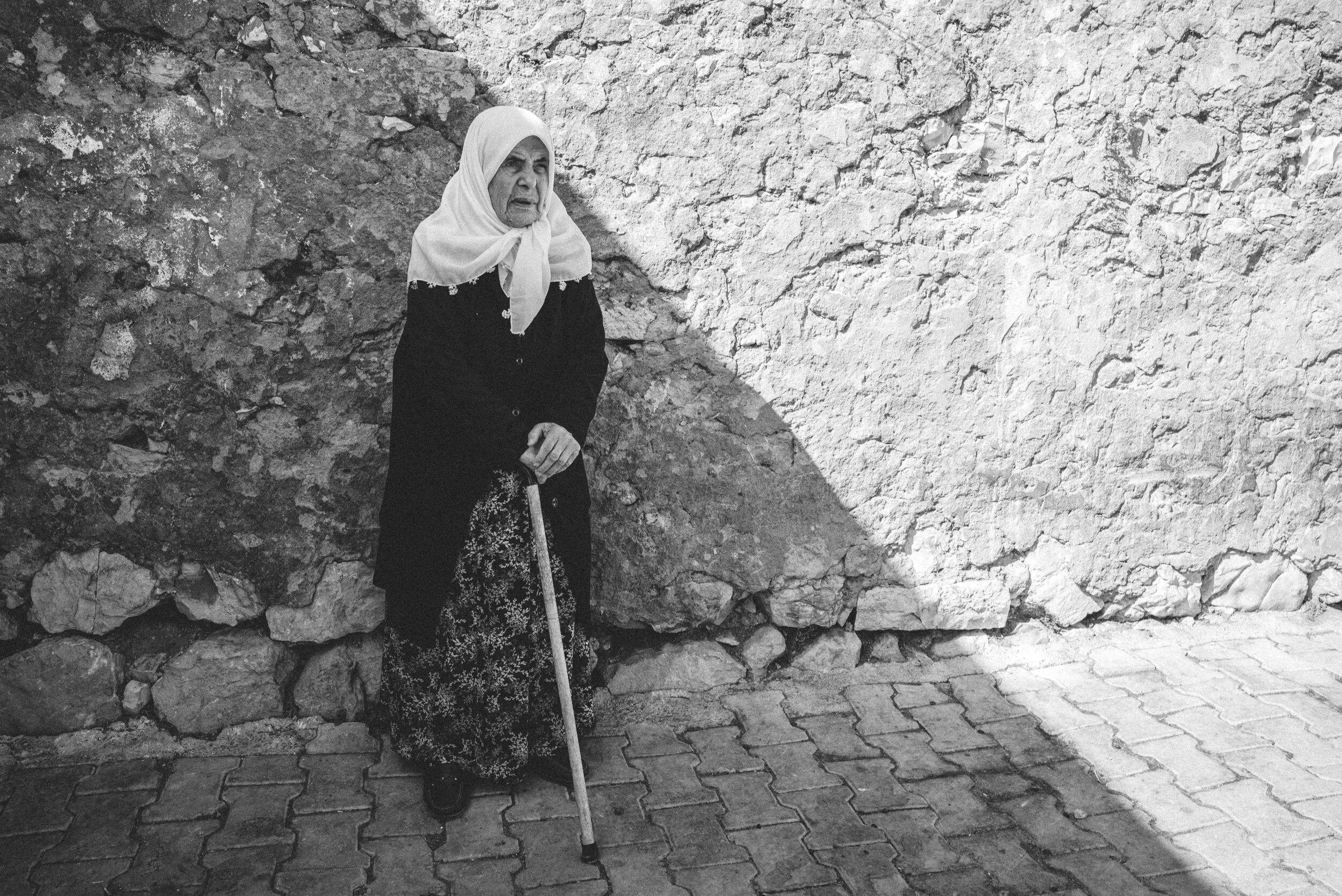
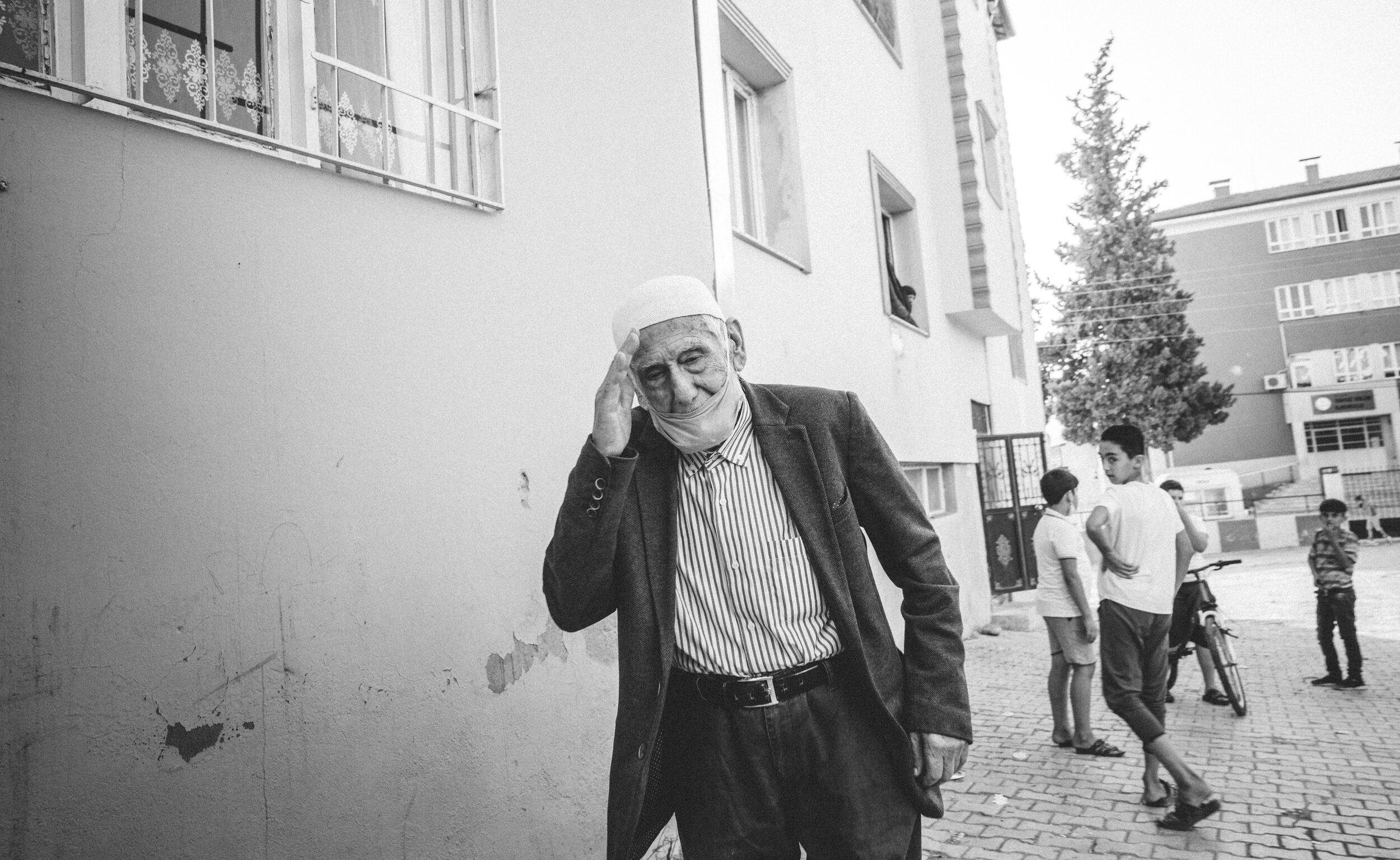
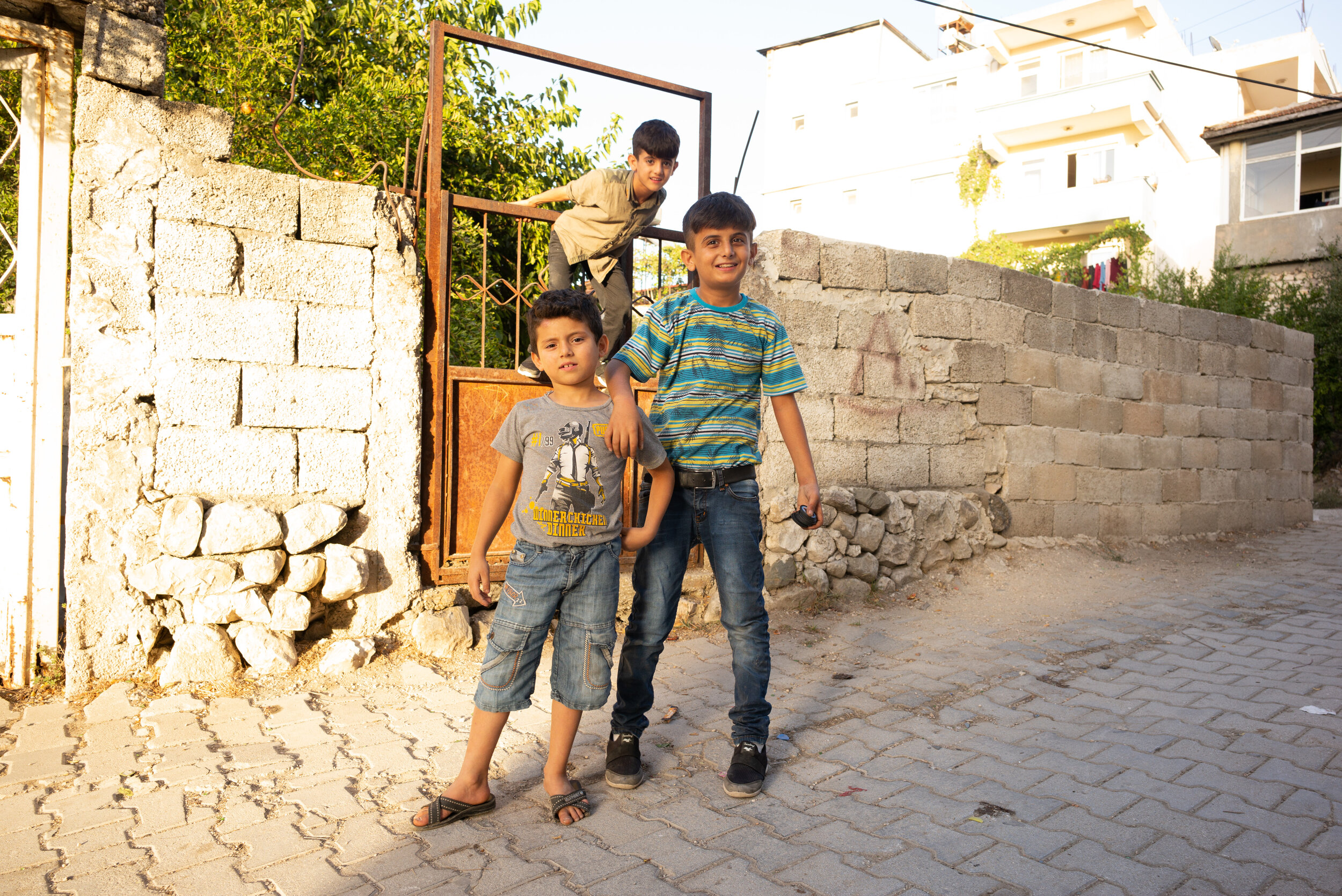
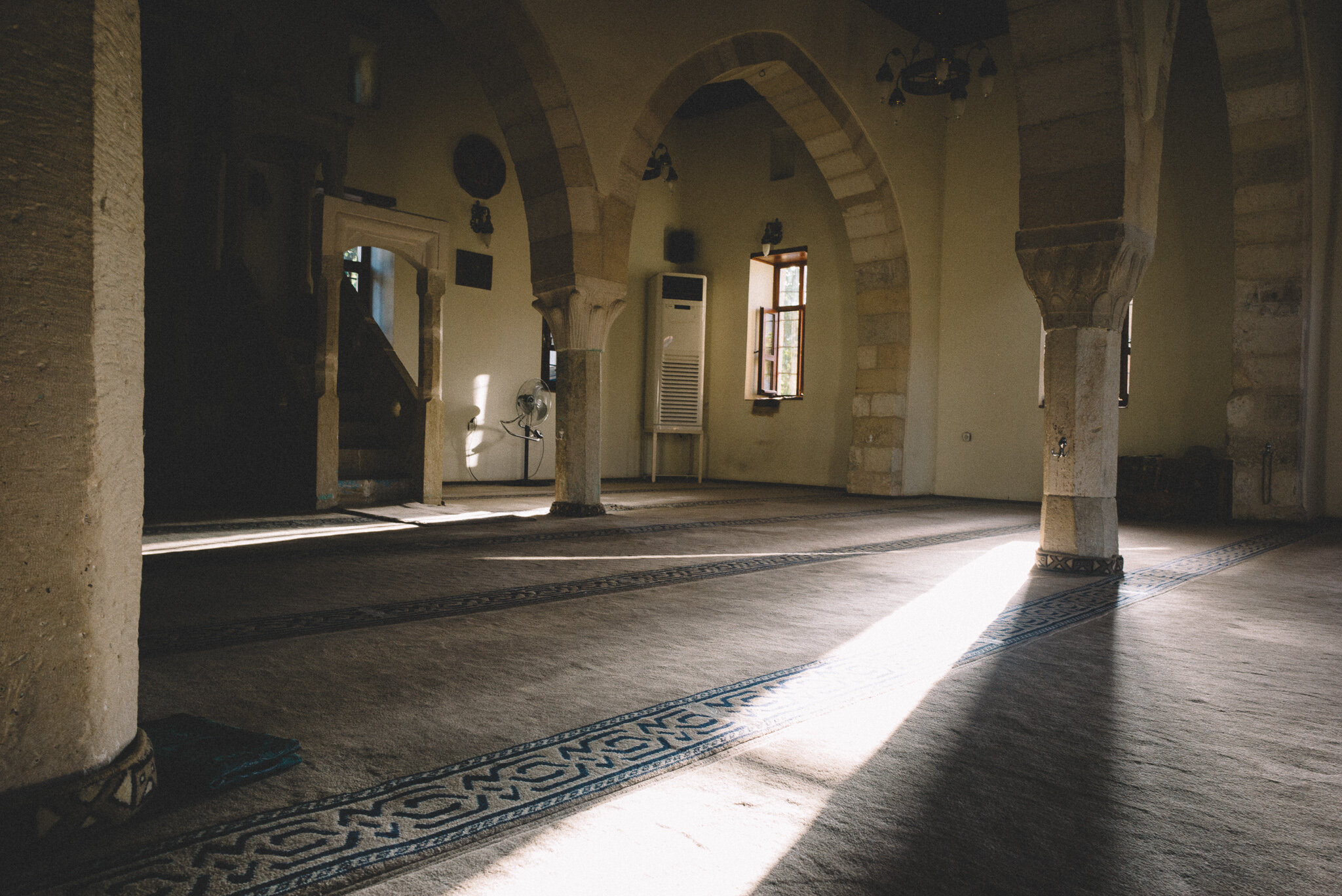
In Yayladagi, red Turkish flags adorn shop windows and apartment complexes. The kebab is ridiculously cheap.
Mohammad, satisfied that Daniel and I will be good company if only we don’t ask him to move about too much, invites us into his house. We’re greeted with tea - I’m not sure how I could ever again expect anything else.
As we are seated, and with no natural phenomena to be pointed out or explained or reminisced about, Mohammed has a question for us: “What is your crazy project about anyway?” As we take our time to explain our objectives as well as we can, Mohammed and Ibrahim are focussed to understand every word. Even Mohammeds son has stopped being a distraction, as he fell asleep on one of the couches.
“Your project is big and deep”, Mohammad contemplates after hearing more about it. “ I think you should travel as wide and far as possible. See all the differences. Because I think it’s funny, it could very well be that, the more differences you see, you might understand more about the likeness as well. Who knows what you will learn!”
